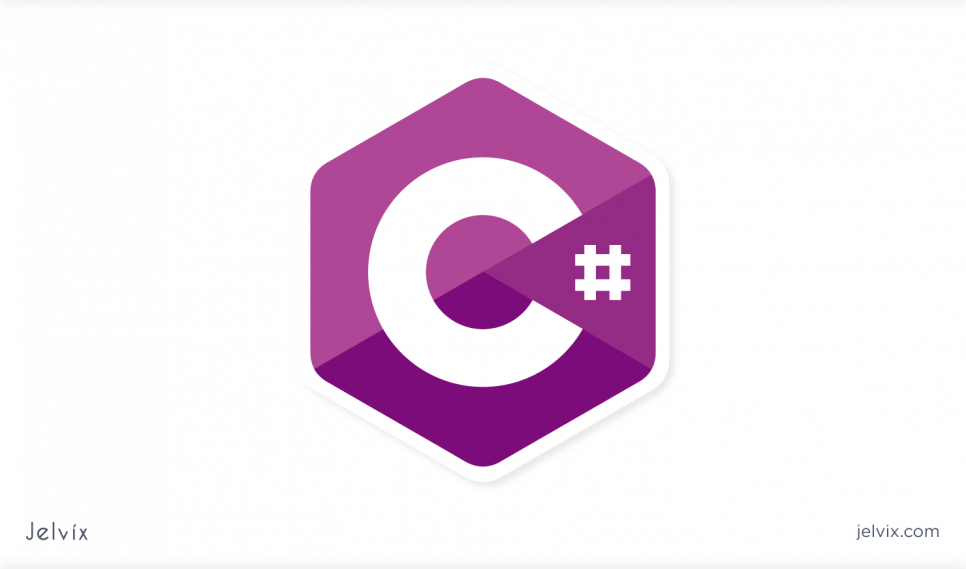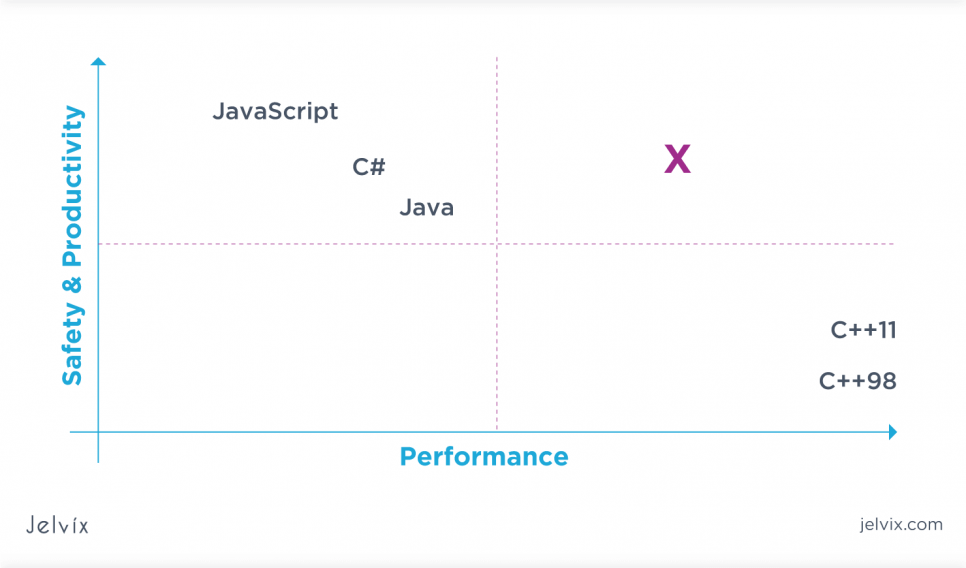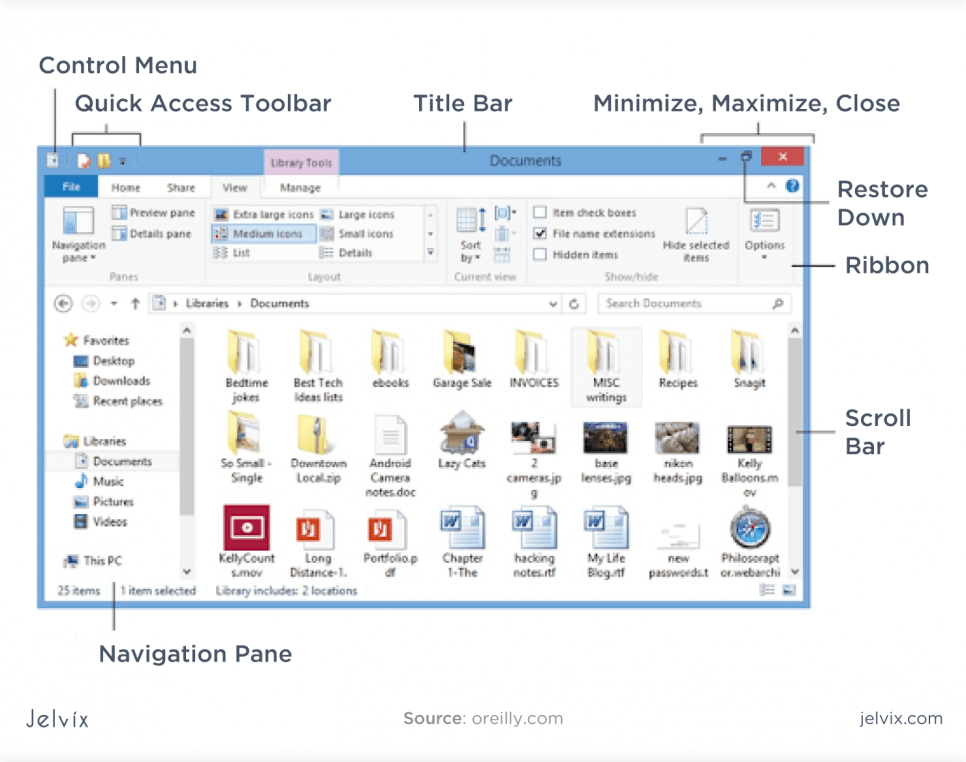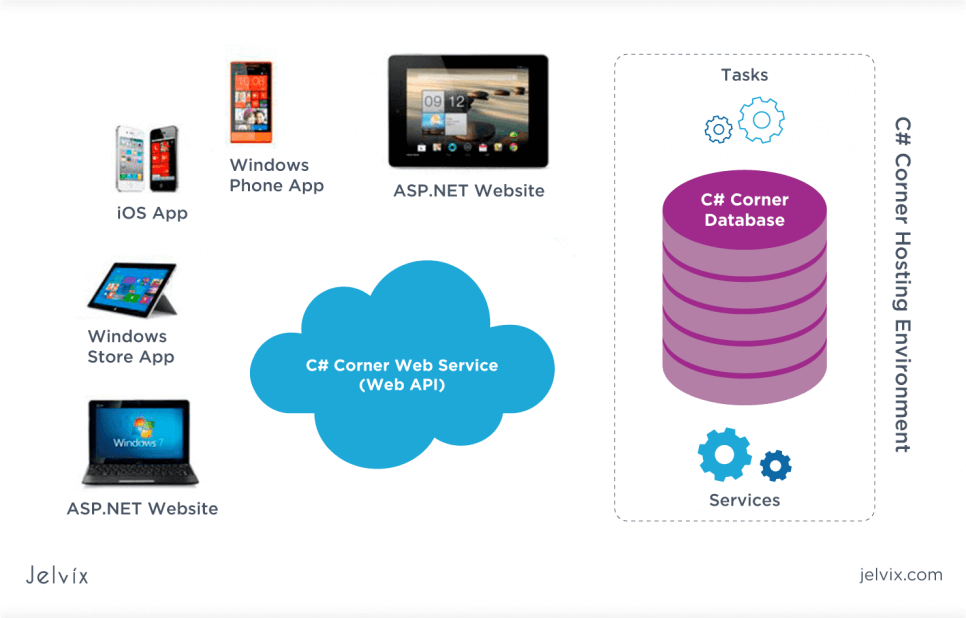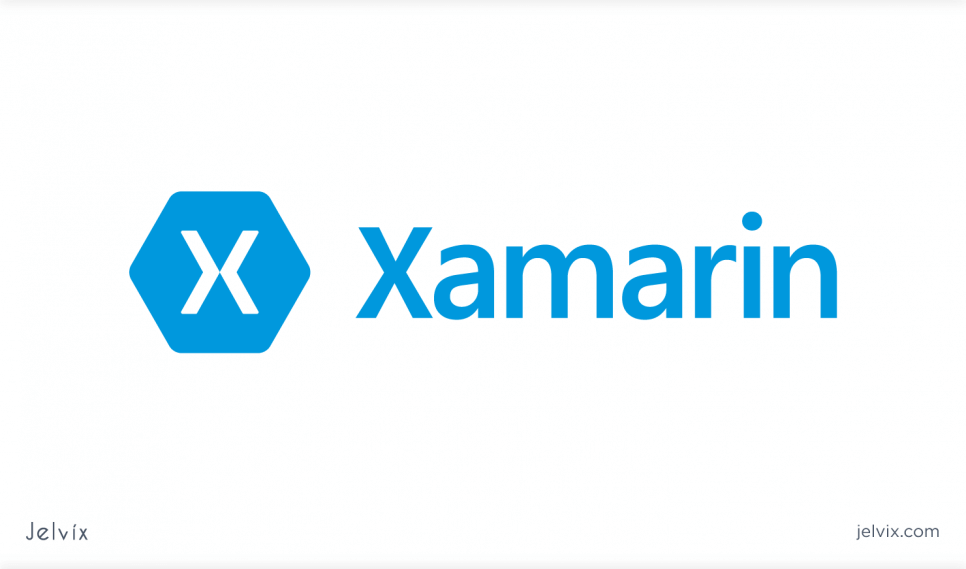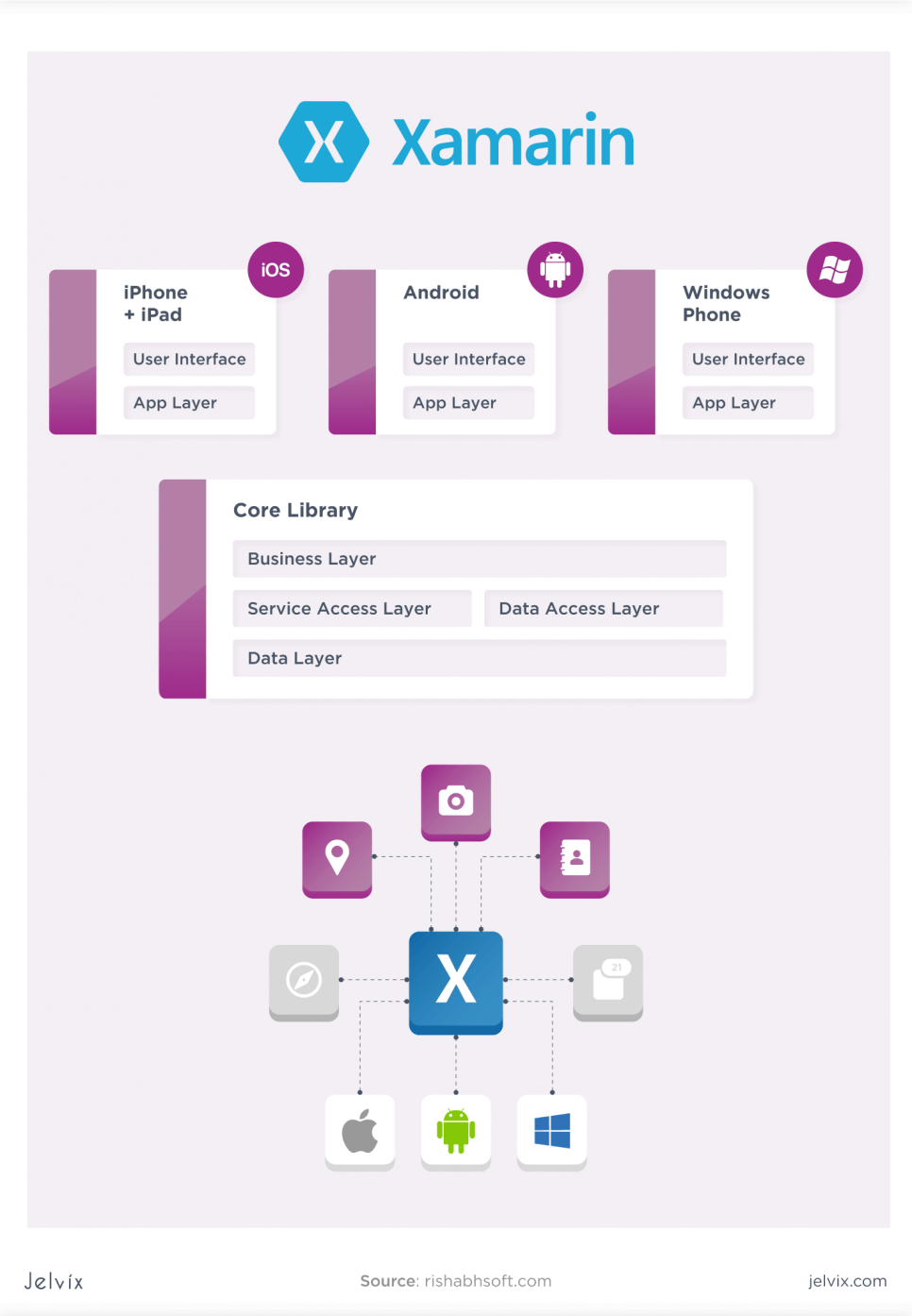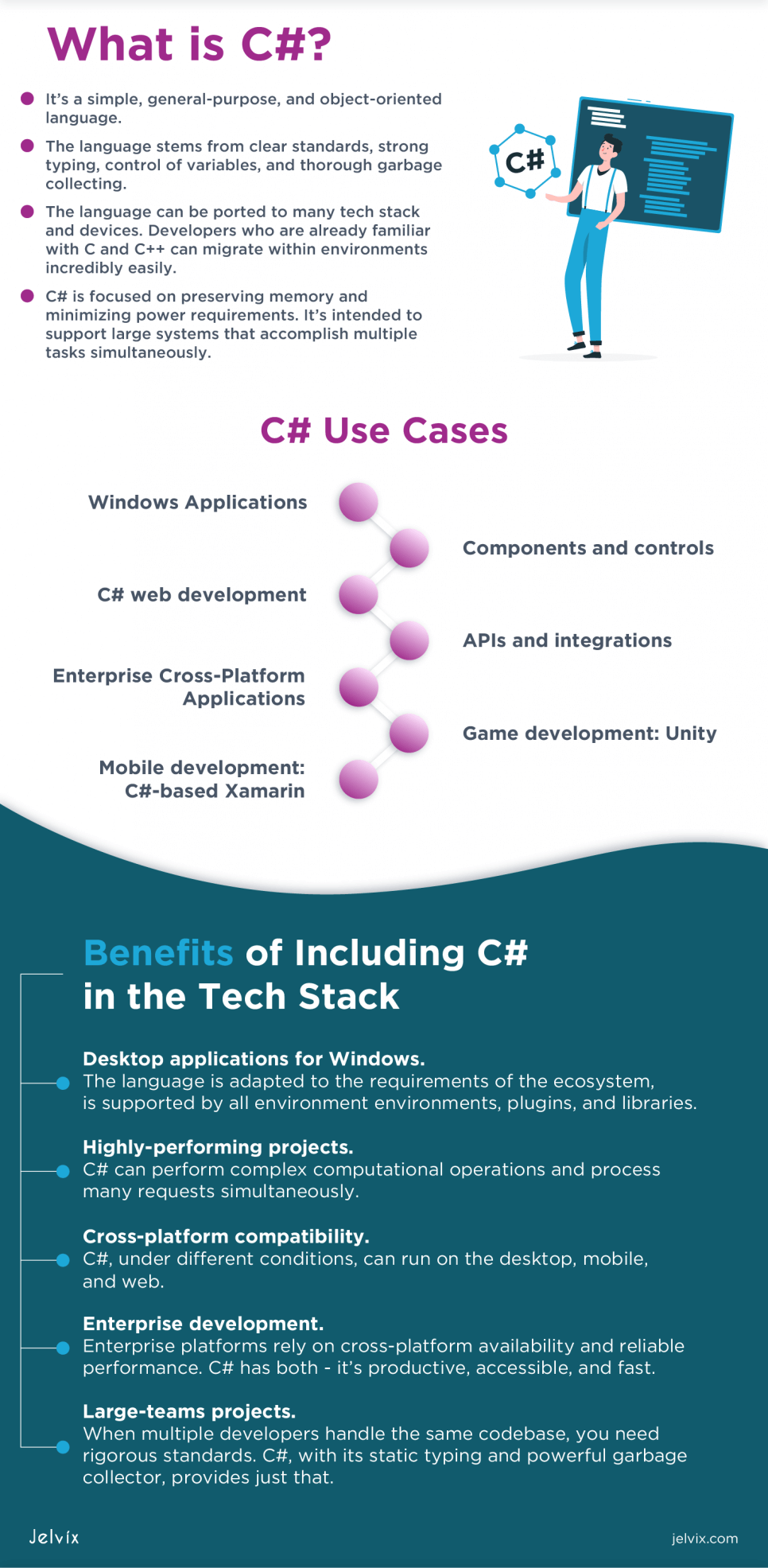According to GitHub contributors, C# is currently in TOP-5 most used development languages. Developers choose C# for all kinds of projects – from web development to 3D gaming. The language has been around for more than 20 years, but its popularity isn’t even close to fading away.
The main reason why languages have been staying on top of the game for so long is their versatility and performance. If it fits many projects, offers cost-efficient solutions, and delivers results, developers will keep using it. So, where is C# used most often? Let’s take a look at the best C# uses.
What are C# Programming Distinctive Characteristics?
C# is a general-purpose language that uses static typing, component-oriented structure, and employs multiple paradigms. There are many ways to accomplish a given task with C# – this is what makes the language suitable for complex projects. Static typing helps contain clear standards throughout the entire codebase and write consistently.
What is C Sharp?
- It’s a simple, general-purpose, and object-oriented language.
- The language stems from clear standards, strong typing, control of variables, and thorough garbage collecting.
- The language can be ported to many tech stack and devices. Developers who are already familiar with C and C++ can migrate within environments incredibly easily.
- C# is focused on preserving memory and minimizing power requirements. It’s intended to support large systems that accomplish multiple tasks simultaneously.
Perhaps, the structural principles of C# can be described best with the word “productivity.” The language has the resources to build complex systems that run multiple tasking operations simultaneously. It works across multiple platforms – web, desktop, mobile development, you name it.
Is C# easy to learn?
As any strong-typing language, C# has its own advantages and disadvantages, many of which are granted exactly by its rigid syntax. In static typing, making a mistake leads to an inability to run the entire codebase – so beginning developers can face difficulties. However, once you get used to C#’s typing, it becomes much more manageable.
In the long run, C# is one of the easiest languages. Because there aren’t as many approaches, developers can easily understand each other’s code, garbage collectors track even small errors, and tech debt doesn’t accumulate. So, although the beginning stages might be rough, immediate learners eventually get to the pay-off.
Read more about the most common software development strategies and take a look at their benefits and drawbacks.
C# Use Cases
C# relies on a rich ecosystem, both official Microsoft tools and user-driven open source community. The language’s basic tools were ported and adapted to different environments, making it a go-to tech stack for many projects.
In this article, we’ll focus specifically on the best applications of C#, but keep in mind that the list will be far from exhaustive.
1. Windows Applications
C# is the official language of the Microsoft ecosystem. The company regularly releases new updates and tools designed to make C# development for Windows easier. It’s a native tool for the operating system. Most Windows software is written with C#, so working with the same tech stack makes integration much easier.
Microsoft Visual Studio and C# define Windows client application development. In Windows, forms, templates, functionality, UI consoles, and browser applications are all based on C#. So are the functionality kits, interface sets, and templates.
Additionally, all updates in recent C# versions have been done with an intention to make the language more suitable for the Windows ecosystem – including client applications.
Reasons to build Windows Applications with C#
- It’s the official language of most Windows Client Applications, with Visual Studio being an excellent example of C# capacities. The language allows building complex, intuitive, fast tools for work and collaboration.
- A lot of resources. Microsoft official guides and community-curated courses provide an excellent foundation.
- Native development tools. Microsoft ecosystem instruments are written with C#, and although they can be used with other languages, C# is still the most compatible one.
- High performance. Even if we compare C# performance with C, C++, and Java, C# outperforms these languages a lot.
Examples of Windows C# applications: Skype, Internet Explorer, Visual Studio, SQL Server, Paintbrush, Microsoft Office software.
2. Components and Controls
If you are building controls and components that will be integrated into C#-based tech stack or any other tech stack, C# is a great option. A lot of control libraries for Windows are written in C#. By using these ready templates, teams can increase their productivity and save budgets.
With ready libraries, developers can integrate control menus, toolbars, title bars, scroll bars, and navigation buttons directly into their Windows desktop apps.
The most popular C# libraries for building Windows components are Class Library, WPF Custom Control Library, Windows Forms Control Library, Portable Class Library, etc.
3. C# Web Development
ASP.NET is a framework used to build web applications with C#. The framework is used to build websites and web apps that can be supported with Windows servers. It’s a powerful backend development environment with a just-in-time compiler, efficient garbage collector, and static typing. ASP.NET supports integrations with JavaScript and HTML and allows working with native web APIs.
Visual Studio supports ASP.NET MVC, Web Forms, and ASP.NET Web pages. Forms are used for creating dynamic controls for data-driven interactive pages. MVC offers functionality for productive model-view-controller management – great for complex operations. Web Pages allow building lightweight HTML pages for fast operations.
Web development with C# using ASP.NET
- Supports complex functionality: ASP.NET has custom functionality for managing large amounts of data and setting up multiple connections.
- Running apps in Sandbox: ASP.NET and Windows ecosystem are protected by strong security settings and built-in authentication.
- Fast performance: just-in-time compilation and early binding data functionality allows the processing of multiple operations. The application interacts with servers only to get the necessary information. Over-fetching and under-fetching are significantly reduced.
- A lot of ready features: ASP.NET offers controls, UI elements, APIs, and ready integrations.
- Flexibility: developers can use C#JavaScript, HTML, and other languages when they are building web backends. It’s an advantage for teams who aspire to develop large-scale web apps.
Websites built with C# and ASP.NET
Facebook, StackOverflow, GoDaddy, Microsoft
4. APIs and Integrations
Windows Services are applications that run on Microsoft servers and can be integrated into cross-platform applications and web pages. Service is not a standalone application – it doesn’t have a user interface or interact with users directly. It’s an automated integration that performs a specific task while being connected to another platform.
C# Web and Windows services are used to build systems for inter-device communication. If your software is meant to synchronize different devices, switch between desktop and web versions, and use internet protocols, you’ll likely need a Web Service.
ASP.NET has functionality that allows building web APIs and enables remote communication between protocols.
The Web Service sits on the Web Server, talks to the database server, and acts as a gateway of data access and manipulation from the clients. Clients are users accessing C# Corner from their web browsers, iOS apps, and other apps.
This gives you an idea of how Windows and Web Services fit in the entire C# universe.
WCF and the Web API are two of the newest technologies in the Web Services space. Here are some excellent links to learn more about Windows and Web Services.
5. Enterprise Cross-Platform Applications
Enterprise applications need to make connections with different tools and transfer loads of data back-and-forth. The enterprise development tech stack’s defining feature is to perform well on multiple platforms and integrate well with databases and third-party tools.
C# is a language that’s used by many databases, APIs, and CRMs. Combining functionality and integrating add-ons becomes much easier when a team uses a universal tech stack. C#, therefore, is often used to build adapters and manage enterprise infrastructures.
Enterprise cross-platform applications rely on complex architectures and multiple integrations. For C#, neither is a problem – in fact, it’s known to be one of the most versatile development languages in terms of available add-ons. Microsoft’s use of C# is a good example of how much the language can accomplish – no wonder many businesses took the same road and chose C# not for one but multiple products.
Here’s a list of some C# programming examples often used in enterprise development:
- SharePoint
- Cloud Business App
- Microsoft Office software
- SQL Server
- Visual Web Parts
6. Game Development: Unity
C# is a powerful language that handles well heavy data loads, demanding interfaces, and real-time operations. Since Unity, one of the most popular game engines, is written in C#, most modern games also use C# as their primary language.
Of course, it’s possible to build games with other languages, but using C# makes it easy to integrate Unity functionality, upload add-ons, and manage libraries.
Popular games developed with C# include Temple Run and Hunt: Showdown. Temple Run is an Endless Runner that acquired more than 1 billion downloads in 2014. The team, comprised of merely two people, managed to build a best-selling game with Unity and C#. Even though it started out with limited resources, the solution successfully scaled and remains quite popular.
Hunt: Showdown, another impressive example of C# use, was developed not in Unity but in CryEngine – another engine that enables C# development. It’s a much more complex game that uses multiple scenarios, sceneries, audio effects, and complex graphics.
In our experience, C# fits well both for small and large-scale games, mainly because it’s supported by the majority of popular development engines. As a result, the number of add-ons, free integrations, interface kits is always increasing – and the development process lately has become much easier.
Mobile Development: C#-based Xamarin
Xamarin and C# tech stacks for mobile development allow finding a fine line between the cross-platform approach to development and enabling native performance. Like React Native, it allows reusing most of the codebase on Android and iOS, while integrated native components achieve the native performance.
C#-based codebase is used for business logic and underlying functionality that’s not platform-specific. Native components are built only for device-specific features – in particular, the ones that require the use of camera, recorder, storage. The ratio of reused versus native code depends on the project, but if you take a look at Xamarin’s case studies, you’ll see that most mention 80/20% or even 90/10%.
Mobile development with Xamarin has many advantages:
- One language and development environment: you can use C# to build Android and iOS apps. Both can be written in Visual Studio Code – one of the best IDEs out there.
- High scores on UI tests: Xamarin fits the standards of Android and iOS. Developers can immediately run UI tests and check the performance. Microsoft has a bunch of resources on Xamarin’s best native development practices and an automated framework for optimizing the workflow.
- A large open-source ecosystem: although Xamarin belongs to Microsoft, the SDK itself, its libraries, and components are all available open-source under the MIT license.
- Easy UI-development: Xamarin ecosystem features Xamarin Forms – a C#-based tool for building custom UI for iOS and Android apps. Developers can integrate native components or reuse design across platforms.
- Reduced time and cost. Using Xamarin allows businesses to synchronize multiple teams, keep track of their progress, exchange files, and increase overall productivity. In combination with Xamarin Forms, you can also reuse ready templates and functionality, which also contributes to budget reduction.
- Fast performance. Xamarin is considered to be native web development regardless of its hybrid-ish nature because it meets all the native performance threshold.s Since developers are the ones to choose when to write native code and when to reuse C#-based features, businesses don’t have to compromise on user experience.
Benefits of Including C# in the Tech Stack
C# can be used for many projects, but obviously, you might have another question – how to know when it’s the best option for the project? For each type of problem, there are several other languages that could also fill the bill. So, should you pick C#? What are the reasons to learn C# programming or base your product on it?
- Desktop applications for Windows. If you are building Windows-based software, C# is a go-to tool. The language is adapted to the requirements of the ecosystem, is supported by all environments, plugins, and libraries. If Microsoft Windows and the majority of other Windows tools are built with C#, it’s just more of a reason to consider it for your project as well.
- Highly-performing projects. C# is one of the fastest languages out there, but it’s not just that. C# can perform complex computational operations and process many requests simultaneously. Its syntax gives you instruments to solve very complex challenges and then execute the solutions.
- Cross-platform compatibility. C#, under different conditions, can run on the desktop, mobile, and web. It supports complex interfaces and integrating APIs.
- Enterprise development. Enterprise platforms rely on cross-platform availability and reliable performance. C# has both – it’s productive, accessible, and fast.
- Large-teams projects: when multiple developers handle the same codebase, you need rigorous standards. C#, with its static typing and powerful garbage collector, provides just that. That’s also why beginners often have doubts along the lines of “is C# hard to learn?” At first, an exact syntax order might seem overwhelming, but in practice, it’s an excellent solution for avoiding tech debt.
C# has a great ecosystem that makes it suitable for many projects and platforms. In our experience, this is what makes C# one of the most scalable tools for enterprise development. At first, this might seem like an insignificant advantage – however, when you are building enterprise software, requirements are constantly changing. So, you need a tech stack that accommodates these shifts and allows you to adapt.
C#, with its ecosystem and cross-platform support, responds to these challenges incredibly well. Also, problems like high entry barriers become less relevant on the enterprise level since large teams usually have more resources. On top of that, with multiple learning resources (many of which are free), integrating C# is not that much of a challenge.
C# can be a great language both for quick fixes and large solutions. If the team knows how to use multiple possibilities offered by the syntax and ecosystem, the business will have a much easier time scaling.
Conclusion
C# is a highly universal language – no wonder it’s consistently among the most loved ones in yearly evaluations. As an enterprise development team, we can confidently say that C# is our frequent choice for software development projects. It’s not limited to enterprise development, though. We often use Unity and Xamarine, as well.
If you are considering implementing C# in your next project, take a look at our case studies to see the real-life applications. Our team can help you start a C# project from scratch or switch from another tech stack (C, C++, and other languages). Let our team know what you have in mind – and we can offer experience-based technical expertise.
Need a qualified team of developers?
Unlock new business opportunities with the first-rate dedicated development team.


